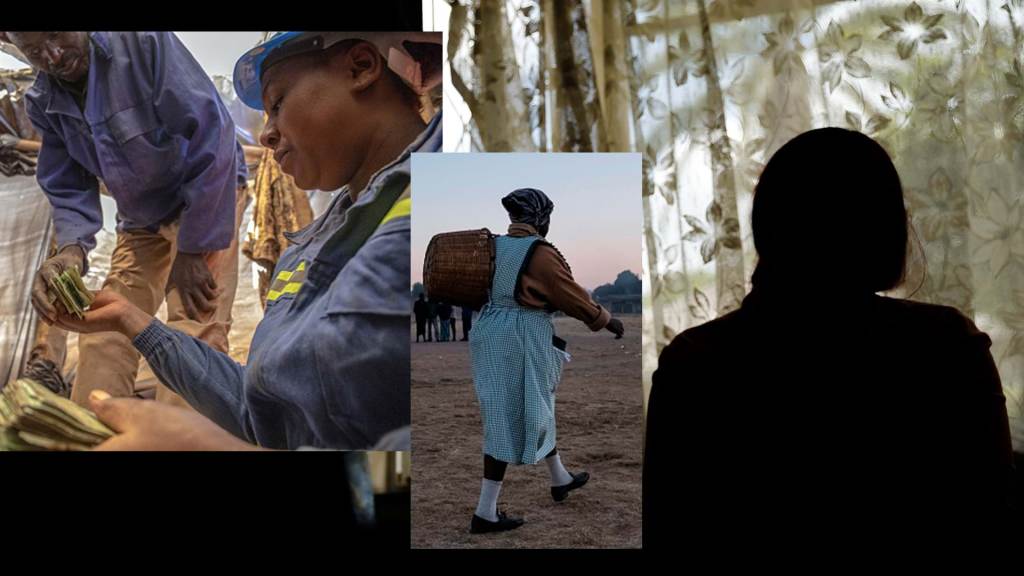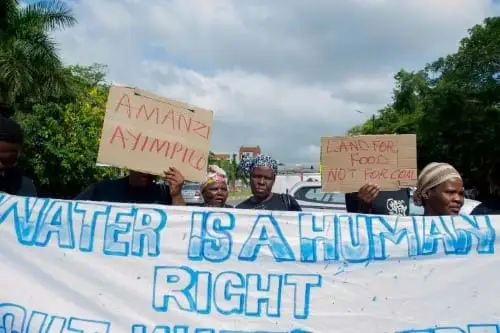 Getty
GettyJust over 15 years ago, in June 2006, local villagers in the Chiadzwa area of Eastern Zimbabwe’s Marange district discovered diamonds. A diamond rush ensued, and thousands flooded the fields, hoping to find fortune. In less than five months, the situation turned grave. As police took control of the fields, torturing, beating, harassing, arresting, imprisoning, and even killing those deemed to be illegal miners, the once peaceful Chiadzwa was radically transformed. Men and boys suffered significant abuse and torture, but gendered structural violence, which had always subjugated women and girls, was intensified and even institutionalized. Sexual assault and rape, for example, were purposefully weaponized to discourage illegal diamond mining, with hundreds of women affected.
This gendered violence was extreme but not exceptional. As an economic model, large-scale extractivism puts profit and growth over people and the planet. It drives inequality precisely because extractions are conducted under certain conditions and without the consent of the local people. Whether it involves diamond mining in Chiadzwa or drilling, logging, or industrial agriculture in other parts of the Global South, extractivism disproportionately affects women and girls. Supported by the Ford Foundation, a new landscape analysis from The SAGE Fund—“Building Power in Crisis: Women’s Responses to Extractivism”—documents that in communities where gender discrimination is already the norm, rampant natural resource extraction and depletion results in women and girls having increased responsibilities and risks.
“Extractivism was born out of colonialism, which wasn’t just about conquering land. It was also about taking control of women’s bodies.”
They are, for example, burdened with additional caretaking when men migrate for higher-paying jobs. They are forced to farm less fertile land that produces poor yields. Their movement is constrained by private security forces or government actors. They are targeted for speaking out against extractive projects. Their reproductive and respiratory health suffer. They are forced into exploitative sex work.
Bearing the greatest burden
“Everyone is at risk when they live in a community where extractivism happens,” explained Winnet Shamuyarira, the project coordinator at WoMin African Alliance, which works in more than a dozen African countries, spotlighting how extractivism exacerbates inequalities. “But women are—and have always been—viewed as disposable. Extractivism was born out of colonialism, which wasn’t just about conquering land. It was also about taking control of women’s bodies, silencing them, and turning them into objects for male consumption. That context impacts everything.”
Over the past decade, WoMin’s research has shown, time and time again, that women carry the heaviest burden and experience extreme trauma when natural resources are taken from their land and exported on a massive scale.
 Getty
GettyEntire communities suffer because of extractivism, but women and girls feel its effect most strongly.
“Extraction happens in deeply patriarchal cultures where there is tremendous inequality,” Shamuyarira said, explaining that corporate and government actors take full advantage of this oppression, utilizing already existing power dynamics to their benefit. That means excluding women from important decision-making processes and turning their bodies into battlegrounds. “We see situations where armed men with guns are given tremendous power. They do not negotiate. They tell you what to do, and if you want to survive, you do it.”
Exercising agency, formulating strategies
“Building Power in Crisis” is part of a recent Ford initiative to highlight the critical intersection of environmental destruction, gender inequality, and civic engagement.
Bold women leaders are fighting back and becoming agents of change…even when their health, safety, and livelihoods are on the line.
In addition to documenting the drivers of extractivism and its disproportionate impact on women and girls, the report finds that there are devastating ripple effects when women and girls are denied control over land and natural resource management. In most of the Global South, women farmers produce between 40-80% of food. They also collect and save seeds, play invaluable roles in forest conservation, and steward local water systems. Extractivism disrupts all of these roles and relationships, but bold women leaders are fighting back, becoming agents of change—and building, transforming, and confronting power—even when their health, safety, and livelihoods are on the line.
 Getty
GettyDeforestation has devastating consequences for women, threatening their ability to grow and access food, medicine, and other products essential for the survival of entire communities.
“What’s really worked are the collective actions that women carry out on the ground,” said Joan Carling, global director of Indigenous People’s Rights International, which addresses and prevents criminalization, violence, and impunity against Indigenous peoples in six countries across Africa, Latin America, and Asia. “Women lie down on the roads and streets to prevent the bulldozers from coming in for mining….Communities on the ground are really standing up and have actually prevented many of these projects.”
Women are also building power in their communities by educating, organizing, and mobilizing marginalized groups who are traditionally excluded from decision-making processes. Power–building by women tends to be less top-down and more inclusive and informative.
“Women are the educators—the ones who share the information, give workshops, even if not formal, in meetings, organizing, weaving together,” said Fernanda Hopenhaym, executive director of Poder, which promotes corporate transparency and accountability in Latin American countries.

“They’re the ones who are developing and strengthening the social fabric….[t]hey take advantage of these spaces to build.” As women become environmental defenders, community conveners, and catalysts for change, they are defying the roles prescribed for them and challenging those benefiting from and spearheading extractive projects. This is nothing short of courageous, but it is also dangerous and often comes with consequences. Allies and funders must step in and offer support. This assistance may initially look like triage.
“When we started thinking about solutions for women in Zimbabwe, we realized that we needed counselors to help them address their trauma—not just as individuals, but also collectively,” said Shamuyarira. “They needed to know that they didn’t do anything wrong. That they were the ones who were violated. And then, as we provided trauma support, we realized that wasn’t sufficient. Women needed practical solutions so they could feed their families and safe spaces so they could build their livelihoods.”
“Building Power” reiterates these ideas, emphasizing that women who have experienced and survived gendered violence also possess the most important information about how to keep themselves safe. Their systems of collective care have transformed how women receive support, removing the onus from individuals and placing it within a community. The report urges funders to be proactive and support a broad range of complementary strategies that are impactful and create space for economic models that move beyond extractivism. This means working with affected women to bolster prevention efforts, stopping violence before it occurs, and considering ambitious proposals that reimagine societies free from destructive economic models. It is possible to facilitate real development—to create women-led, collaborative, autonomous communities that build power for all.
Related Grantees
